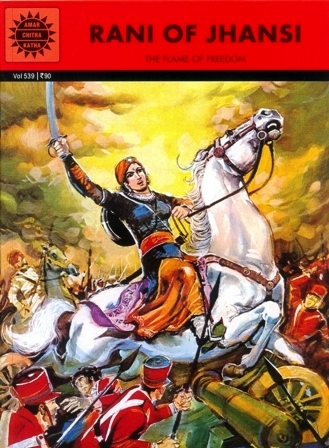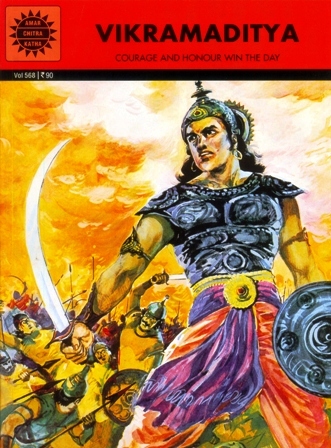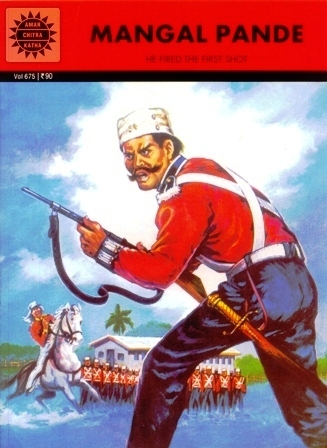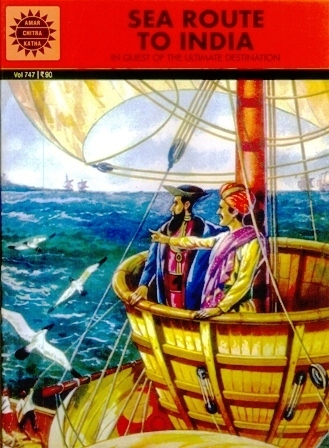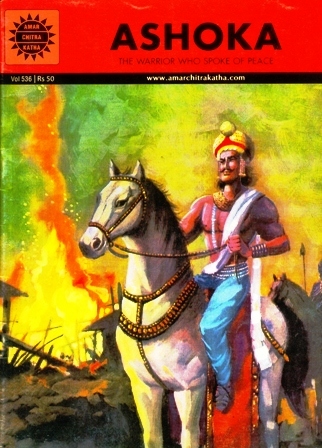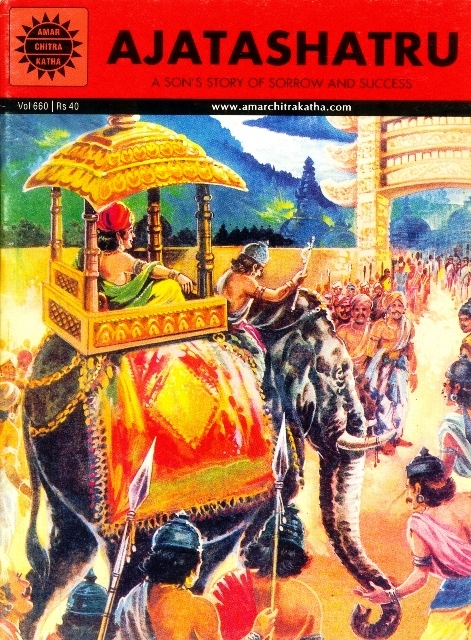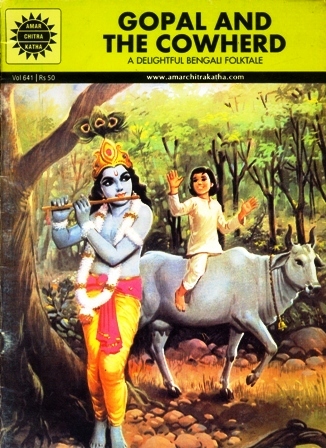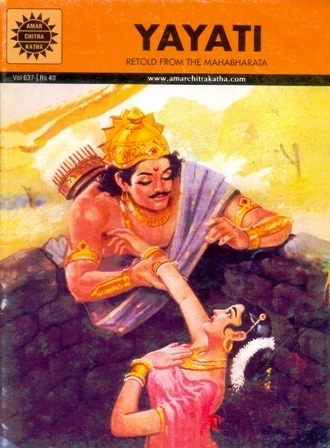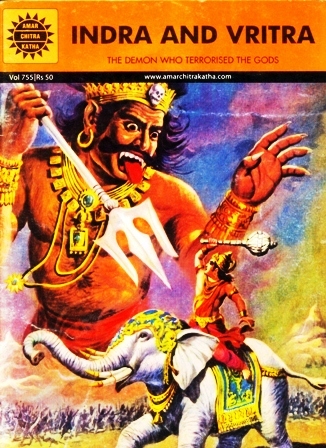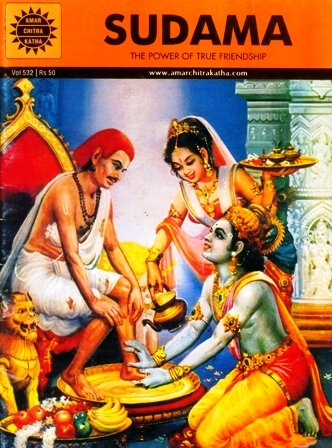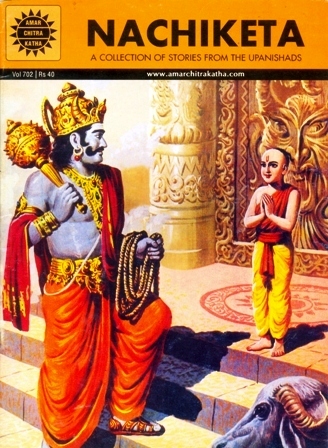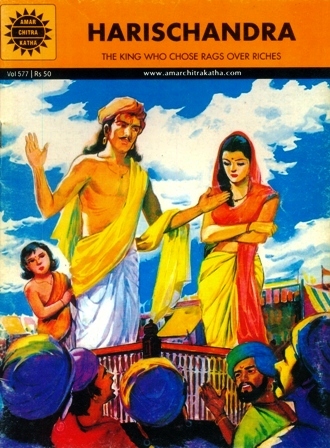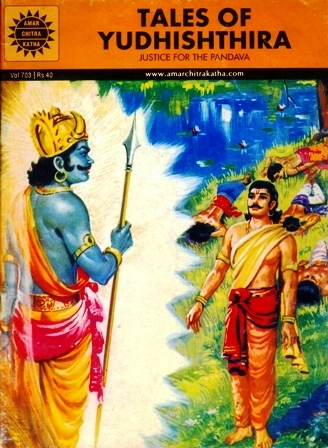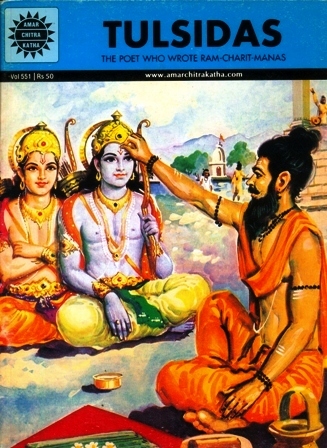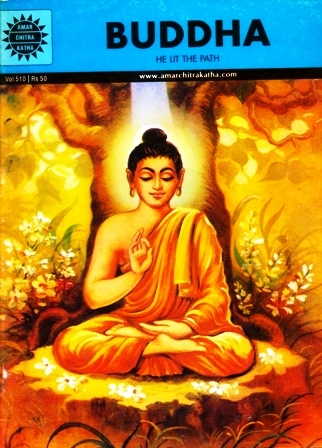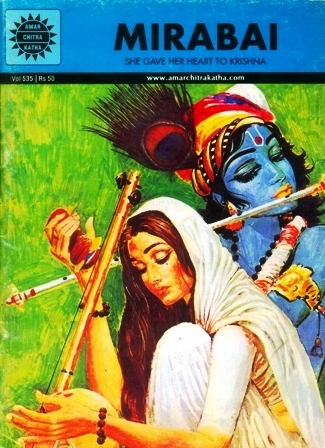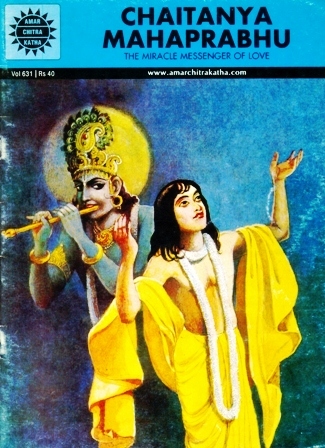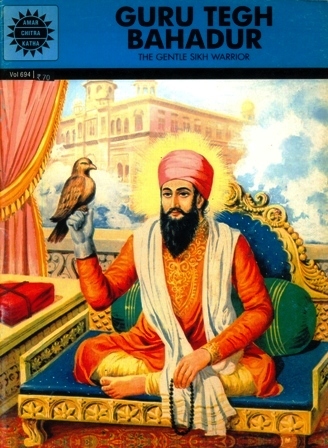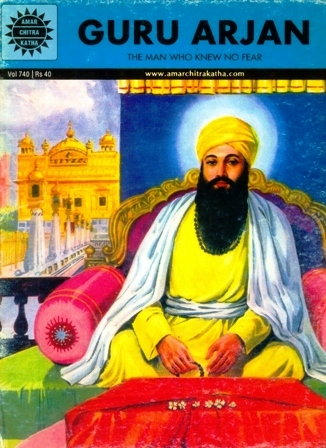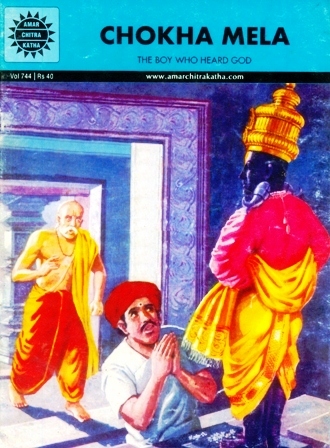-
Rani of Jhansi...
She ruled over a small kingdom, but dreamt of freedom for the whole country. In the great revolt of 1857, Lakshmibai, the Rani of Jhansi, matched wits and force with the best of British generals. The image of the brave Rani of Jhansi charging her steed through enemy lines, her sword raised for the next thrust, is forever imprinted in Indian hearts.
-
Vikramaditya
A jealous brother robbed him of his kingdom, his own courage won it back. Chandragupta Vikramaditya has a special place in history because he proved that the love of power is not all that is needed to create an empire. Also needed are the love of a wise woman and good, old-fashioned honor.
-
Mangal Pande
The Indian sepoys of the Native Infantry Regiment, in Barrackpore, were appalled when they heard that the catridges they bit into before loading their guns were going to be greased with cow and pig fat. It was an insult to their religious sentiments. The murmurings of dissent rose as the news spread but the Britsh were insentitive to the reasons behind it. And then Mangal Pandey, a sepoy from the Native Infantry, fired the shot that triggered off the First War of Indian Independence.
-
Sea Route To India
The spices of India can take credit for inspiring some of the greatest maritime expeditions in the world. In a bid to find the sea route to India, European explorers like Bartholomew Diaz, Christopher Columbus and Vasco da Gama braved uncharted seas, discovered new lands and earned fame and glory for themselves. But for India, the opening of the trade route was both a blessing and a curse.
-
Ashoka
A power-hungry warrior and a peace-loving wife - could they ever tread together on the path of non-violence? Ashoka waged war after ruthless war, yet by the time his children grew up, he proudly saw them off as Buddhist missionaries. Read of the charmed life of this famous king of Magadha, who not only built a prosperous kingdom but spread the message of universal love.
-
Ajatashatru
Ajatashatru is ridden with guilt. What does a king do when, in a moment of misguided ambition, he orders the death of his own father? Ajatashatru wages war on his neighbors with brilliant new machines, expands his realm to make it a powerful empire and founds the new capital city of Pataliputra (modern Patna). But try as he might, he cannot shed his feelings of remorse and sorrow, until Gautama Bauddha shows him the way.
-
Gopal And The Cowherd
This simple Bengali folktale, illustrating the power of faith, was passed down from teacher to disciple from Sri Ramakrishna to Swami Vivekananda and from him to Sister Nivedita, who recounted it in 'Cradle Tales of Hinduism'. Little Gopal is afraid to walk alone through the forest to school. His mother tells him, "Call out to your cowherd brother. He will come and protect you". When Gopal calls out, to his delight, a cowherd with dancing eyes appears and escorts him to school.
-
Yayati
King Yayati had stopped only to quench his thirst, but the forest well presented him with a beautiful bride! All he had to do now was treat her well, but womanly wiles worked their spell to destroy his happiness. It took a thousand years of indulgence to make him see the path to true contentment and it did not lie through worldly pleasures.
-
Indra And Vritra
Vritra, the invincible asura, was created by Sage Twashta to avenge the death of his son, Vishwarupa, who had been killed by Indra. There was no weapon in the arsenal of the gods that could stop Vritra as he went on a rampage. Indra and the gods appealed to Lord Vishnu for help. Vishnu told them that only a weapon made from the bones of Sage Dadhichi would kill Vritra. The battle between Vritra and Indra was first told in the Rigveda. The version used here is taken from the Bhagawat Purana.
-
Sudama
Sudama's gift was small and inexpensive, but Krishna found it priceless as it came with selfless love. Krishna, who had both wealth and fame at his command, received it with pure joy. Life had taken the two friends on different paths and Sudama was now painfully poor. Their affection overcame all differences, however. A simple meal became equal to a luxurious feast and magically turned a poor hut into a mansion of gold.
-
Nachiketa
Young and virtuous, Nachiketa and Satyakama had one thing in common, they sought true knowledge. The song of birds, the thunder of rain clouds and the glow of the morning sun revealed life's secrets to Satyakama. Coming face to face with the lord of death, Nachiketa found the key to immortality. The lessons the two seekers learned were priceless, for they opened to others the door to eternal bliss.
-
Tales Of Yudhishthira
Loyal brother, caring husband, humble victor and kind human being Yudhisthira had earned the right to eternal happiness. But he wanted his loved ones around him, and for this he was willing to endure the tortures of hell. His life was a series of tests, trials and tribulations but he never failed to rise to the occasion.
-
Tulsidas
The Emperor Akbar wanted to honor him but for the poet Tulsidas no honor was greater than telling the story of Lord Rama to ordinary people in a language they understood. His rendition of Valmiki's Ramayana in Awadhi, a dialect of Hindi, was different from its Sanskrit original in many ways but such was its popularity that even today every village and town in the Hindi heartland has a troupe that enacts the story of Rama based on Tulsidas' work.
-
Buddha
King Suddhodana was at his wit's end. He had surrounded his handsome young heir with comfort and riches, love and respect, but Prince Siddhartha was still not content. One night, the prince abandoned his family. Exchanging his royal robes for a begging bowl, his luxurious palace for the shade of a tree, Siddhartha lived the life of an ascetic to seek the ultimate truth about life and suffering. His search led him to enlightenment and he became Buddha, the Awakened One.
-
Mirabai
She was only a child of five and he a mere image of the Lord Krishna, but little Mira loved him with all her heart. So strong was her devotion that it rendered even irate kings and murderous relatives powerless. Mirabai became a queen, but she continued to serenade her lord through the ups and downs of her eventful life. Her hymns to Krishna, which are sung to this day, left even the great Mughal emperor Akbar spellbound.
-
Chaitanya Mahaprabhu
Could a man of flesh and blood be lord Vishnu himself? The infant who insisted on claiming the offerings made to the lord had matured into a single-minded Vaishnava. People thronged to him for his happy, simple message of love. This is the story of Chaitanya Mahaprabhu, the renowned Vaishnava saint (16th century) who popularized the chanting of the Hare Krishna mantra. His followers regard him as an avatar of Krishna.
-
Guru Tegh Bahadur
The 13-year-old fought as valiantly as a lion and his proud father dubbed him Tegh Bahadur or Brave Knight of the Sword. But this lad also loved the arts, had studied the sciences and enjoyed spending time in prayer and meditation. Moreover, he was truly selfless and it was this quality that made him such a fitting leader of men, even in his death.
-
Guru Arjan
When Guru Ramdas chose his youngest son, Arjanmal, to succeed him as the fifth guru of the Sikhs, it created a lot of ill-will in his eldest son, Prithichand. But the choice was not wrong. Guru Arjan was the very embodiment of love, humility and courage. His greatest contribution to Sikhism was the compilation of the Guru Granth Sahib and the construction of the Har Mandir Sahib in Amritsar. He was the first Sikh martyr and by his death inspired his followers to uphold the truth under any pressure.
-
Chokha Mela
Chokha was a young boy when he first heard the call of the Lord. But all attempts to enter temples were thwarted by those who only saw him as a Mahar, an untouchable. However, Chokha's devotion was such that his heart became a temple and he sang with purity and complete faith. Chokha Mela's Abhangs or verses echo to this day around the temples of Maharashtra.

